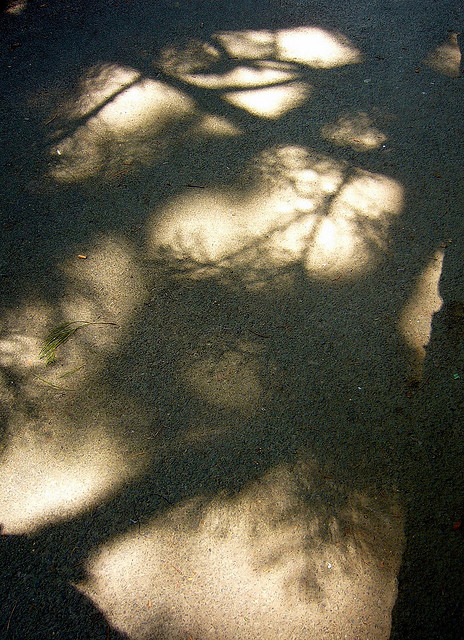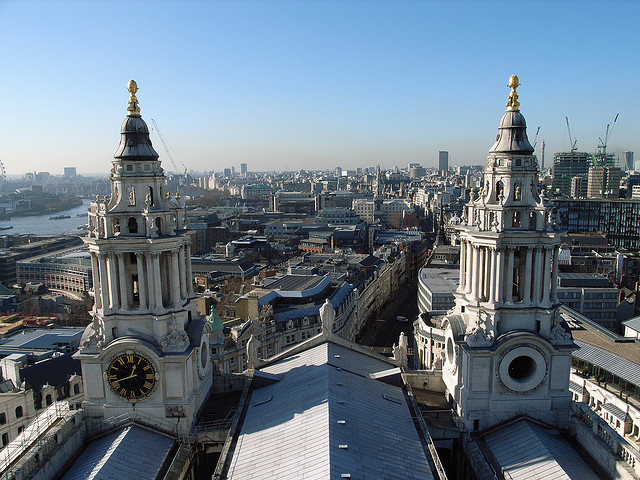If you've never used Reddit before, "Today I Learned" (TIL) is a subreddit to share interesting bits and pieces you've learned recently, which doesn't count as news or politics.
Recently, we were delighted to see a TIL about a subject very close to our own hearts, the right to light. A fairly tricky part of planning consultancy, right to light is complicated enough to require a specific surveyor to deal with all the ins and outs.
Although we weren't there quite on time to answer all the great questions, fortunately there were others who were there on time. To save you going through all of that text, here are the highlights.
Tree Troubles
Trees seem complicated – they're a potential source of shade which might not cast any shade when the building is first erected.
Reddit commenter /u/irishsausage explains:
Trees are treated differently depending on whether they are deciduous or evergreen, and to what size they are when the building is first erected.
In other words, this is probably an issue where a certain amount of common sense applies. If your building is first erected in full view of a row of quick-growing deciduous saplings, you can't reasonably complain when your light is blocked twenty years down the line. That's something you could reasonably have expected to be an issue.

Image by overthemoon
On the other hand, if your building is first erected in front of a single slow-growing evergreen seedling, then in sixty years time you might reasonably complain that you're now in the shade. The government still won't do anything dramatic, but they might help you prune the trees to allow more light through, especially if the tree has unhealthy limbs and branches.
If a tree is on the land you are building on it is a simply case of removal, if it is on somebody else land that's a problem.
This is in some ways a much broader point. You have no absolute right to light from across a neighbour's land, so trees built on a neighbour's land are, as /u/irishsausage says, a problem.
/u/ratshack adds a useful cautionary tale, highlighting the importance of talking to your neighbours:
I saw a case where neighbors spent $50K+ suing in order to get a palm tree trimmed or removed as there was an ocean view involved. They lost. The lady with the palm tree only fought the suit because she had the money and "they were rude about it". The first she heard of it was when she was served with the lawsuit. apparently the plaintiff never bothered to simply walk across the street and ask or talk about it like neighbors. Straight to lawsuit, which they lost.
Always talk to your neighbours. You never know who you're dealing with, and being polite can really help you out!
London Lights
London has a great deal of historical buildings, which are low-rise and easily-overshadowed. /u/archigrammar points out that this has had a major impact on the London skyline, causing its unusual appearance, with tight clusters of skyscrapers.
Well part of it has to do with mayor of London's policy of grouping skyscrapers into clusters, which has economic motives, but is also driven by the need to avoid blocking protected views of important landmarks. Historically people have a romantic notion of London being a 'Venetian city' of low buildings, in the 1930's there was public outcry over the construction of two buildings; Faraday House and Unilever House which were tall enough to block well loved views of st pauls cathedral.
This goes beyond right to light, going so far as to incorporate protected views, which is why you can still climb to the top of the relatively low St. Paul's Cathedral, and see for absolutely miles.

Image by Steve Cadman
/u/irishsausage shared, further down, the story of the Tamares court case, which is hugely important in right to light law:
A developer built a large office block in London and this caused an injury to a single window overlooking a staircase in an old historic building. The affected owner objected to this and negotiations began to try to reach compensation. The experts valued the loss at ~£13,000 (I believe) this is fairly subjective and liable to increase by a factor of 2 or 3. The owner refused and went to court to obtain an injunction (as was his right). By this point the developer had finished construction and was in danger of possible having to demolish part or all of the new building. The judge ruled that the injury could be compensated monetarily but didn't agree with the figure, instead he decided to award the objector with a share of the developer profit. A fairly hefty sum instead of the £13,000. This means any developer might have to award a share of their profits to an objector.
In fact, this case is important enough to be explicitly mentioned on the "right to light" Wikipedia page!
The implications of this are enormous, and forced developers and property owners to start paying a lot more attention to things like right to light and light obstruction notices.
What Is 'Light' Anyway?
This question is addressed by /u/jmortimer, responding to a user who is concerned about how much 'light' counts as 'light' in the first place.
It's based on change in percentage of sky visibility. E.g. if a commercial office has >0.2% of the sky visible at a height of 2'9" from specified areas of the rooms in question, and after the change <0.2% of the sky is visible , then you may have a claim. Sky visibility is more or less a constant with time.
/u/irishsausage adds to this, clarifying that no, you can't just build mirrors to divert light into a building any more than you can just build a floodlight in front of your neighbour's windows (although I imagine that case would be amusing to work on).
The 0.2% comes from the whole sky dome. So in layman's terms if you can see sky from the window that part of the room will be satisfied. If more than 50% of the room is satisfied no injury is caused.

Light isn't sunlight, and even daylight is a little too vague a definition. That's why these ultra-precise, percentage-based definitions have to be used.
Other Countries
According to /u/meqwon:
I would imagine that the right to light is common in European legal systems, since most modern European common law evolved from ancient Roman law. In Rome, you could sue your neighbor if their property or anything on it prevented you from having reasonable access to light.
Continental law is not really our thing, but this is an interesting point, and one that's backed up by /u/Moongrazer to an extent. They go into even more detail though, explaining the interestingly-named system of 'servitudes' in Belgium.
We have this in Belgium too. They're called "servitudes"; one plot of land is in servitude to another plot of land. This can have multiple reasons of existence, with one of the more prominent being: time passed. 20 years, 30 years, etc. 30 years of continuous ownership will give you FULL rights over the object as if you were its rightful owner, this covers basically everything from houses to bikes. So let's say, someone has a tree in his garden that's been there for over 30 years? No neighbour can ever claim against that tree again, since the plot owner got full and indefinite rights over it by virtue of having continuous ownership over the tree for 30 years. The neighbour's plot is now in "servitude" to the tree-bearing plot with regards to its owners always having to acquiesce to the presence of the tree.
It might not be relevant to us, but it's always fascinating to see how other legal systems work!
Why So Popular?
There's more interesting stuff on the thread, but these were the parts we felt were most revealing. The absolute most interesting part of this thread, though, was how interesting everyone found it!
Typically, planning law doesn't get nearly so much attention from a mainstream audience. We think that the interest came from a rare glimpse into an area of law that is complicated specifically because it depends on ideas and concepts which seem to be quite simple and intuitive. Then, when the lawsuits start flying, we realise we've got no idea what we mean when we say a room is 'light' or 'dark'!
/u/irishsausage, who provided many of the most interesting answers we've got here, is doing an "Ask Me Anything" (AMA) soon, also on Reddit. Hope to see you there!
